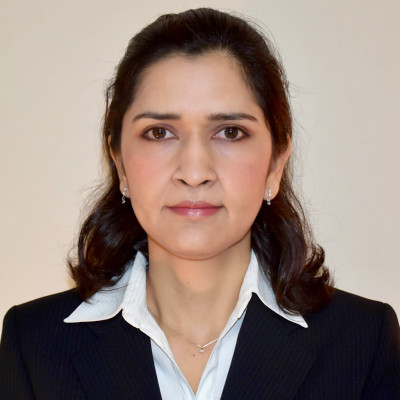Sessions / Zoom A

Electronic Projects using Breadboards #161
This is a case study of a CLIL (content-language integrated learning) STEM (science technology engineering mathematics) task-based course for college freshmen majoring in technical fields such as engineering or science. Students build electronic circuits using breadboards and discrete components, and become able to explain in both L1 and L2 how to construct and operate the circuits. Our students have never done these tasks before. Our students are familiar with electronics theory but are unaware of actual circuits and components. For example, on an LED (light emitting diode) the positive (also called anode) lead is longer than the negative (also called cathode) lead. By learning how to identify components and build circuits, students balance their theoretical and practical knowledge. We provide assembly instructions in L1, and similar phrases in L2. After building, testing, and demonstrating kits to classmates, students write assembly instructions in L2. Much of the CLIL component of this course is in vocabulary. We expose students to both L1 and L2 because students need to become bilingual. Much of the STEM component is in practical electronics. Although our results are not necessarily generalizable, our experience may assist practitioners seeking course designs or teaching plans for CLIL and STEM.



Bilingualism SIG Forum #98
It goes without saying that 2020 has not gone as planned, and the world has been greatly impacted by COVID-19. Thus, the revised theme for this year’s 2020 Bilingual SIG forum will include stories from three bilingual/multilingual families living in Japan, in regards to how they’ve been supporting their languages and education throughout this turbulent time.

Technology: Bringing us together in a chaotic world #194
The web was born just 30 years ago with its sharing technology promising a world of tolerance, goodwill, and understanding. Yet somewhere along this road, this dream has been shattered with our online world apparently to blame for the chaos we seem to find ourselves in.
This talk will be about why this has happened, what we can do about it, and how we need to redefine our relationship with this world both on a personal level and a societal one to better cope with this new reality.

The PanSIG Social #205
Join your host, Melodie Cook, for our online PanSIG social. Relax, chat, BYOF/B (food and booze)!

Intercultural competence in domestic students #129
The rapid development of international education has occurred alongside a growing need for higher education institutions to educate global citizens. Yet, traditional approaches to internationalisation, such as a mobility, have proven to be restricted to a small percentage of students, and Japanese undergraduates often cite financial, safety, and job-hunting concerns as obstacles to studying abroad. Internationalisation-at-home has emerged as a viable alternative to experiences abroad in the quest for global human resources. This session is aimed at presenting cases of two Top Global universities leading internationalisation in Japan and their institutional efforts to foster interculturally competent domestic students through contact with international students on campus. I will discuss results from a longitudinal survey, carried out over one-year, of 164 Japanese students engaged in a range of curricular and extracurricular programmes with both international and domestic students and an intercultural focus, including teacher-led lectures and programmes, a residential programme aimed at first-year students, and regular university circles. Results from 10 follow-up student interviews shed further light on the factors promoting and hindering the development of globally competent graduates on domestic campuses, thus generating a discussion platform from which internationalisation-at-home strategies can be implemented more effectively.

Global education through online international collaboration #132
Students today are facing an increasingly interconnected global society that demands cross-cultural understanding and communication skills. Thus, fostering global education through online international collaboration and exchange in language classrooms has proven to be beneficial to students (El-Hindi, 1998; Schreiber and Jansz, 2020).
This study examines a school exchange program conducted through live video conferencing between two schools in Japan and Nepal. Through the exchange program, students learned about school life, culture, and society in each other's countries. The impacts of the program on broadening student's understanding of culture and society in each other's countries and their English language ability and motivation were evaluated through the questionnaire survey and observations. Participating students took the pre- and post- session-questionnaires.
Quantitative results show that students' interest and knowledge about the culture and society of each others' countries and motivation to learn English increased significantly after the exchange program. This technique was found to be effective not only to learn the language but also to enhance cross-cultural awareness that fosters global education.
References: El-Hindi, Amelia E. (1998). Beyond Classroom Boundaries: Constructivist Teaching with the Internet (Exploring Literacy on the Internet), Reading Teacher, 51(8), pp. 694-700. Schreiber, Brooke R; Jansz, Mihiri (2020). Reducing distance through online international collaboration, ELT Journal, 74(1), pp. 63–72, https://doi.org/10.1093/elt/ccz045

Intercultural competence: An overview #133
In an increasingly interconnected world, our students now need intercultural communication skills for their personal and professional relationships more than ever. What the term intercultural communication comprises, how it can be learned, and how that can be applied to the classroom, however, is not always clear.
This video poster session will begin with some background from a few theorists who have described the nature and relevance of intercultural communication. They include Edward T. Hall, who suggested the pervasive influence of an unconscious aspect of culture, and Michael Byram, who laid out the attributes of an effective intercultural communicator.
Moving onto how these communication skills are acquired, the second part of the session will consider culture through the lens of social psychology. Specifically, there will be a description of implicit knowledge, its role in how we interpret and intuitively respond to ambiguous cues in interpersonal interaction, as well as empirical research on how these implicit interpersonal perceptive skills develop.
Because of this unconscious component of culture, the challenge for us as educators is to bring experiential approaches into our teaching practices. In a foreign language learning environment detached from any large community of speakers, though, this is especially challenging. As a potential solution, an approach to intercultural learning through film and television will be briefly described. Through these visual storytelling media, now accessible internationally via streaming services, learners may be able to develop the beginnings of deep and implicit understandings of cultural practices and perspectives.

Self-reflection in intercultural communication #190
Cultural awareness has commonly been discussed in the previous literature in relation to comparisons among cultural or national groups. However, Baker (2012) argues that such view should be reconsidered; he brings intercultural awareness into the spotlight defining it as “a conscious understanding of the role culturally based forms, practices, and frames of understanding can have in intercultural communication, and an ability to put these conceptions into practice in a flexible and context specific manner in real time communication.” Based on Baker’s notion of intercultural awareness, this study describes its application in the Japanese EFL context by emphasizing the importance of self-reflection type of assignments and classroom activities. Therefore, this exploratory study aims at examining students’ intercultural awareness development throughout a year, by analyzing their final project titled Our Intercultural Encounters which used Council of Europe’s Autobiography of Intercultural Encounters as resource material. The qualitative analysis of students’ group discussions shows a deeper understanding of themselves, their biases, and their own culture, as well as a higher level of intercultural understanding.





Intercultural Communication and Mobility #131
For the PanSIG 2020's forum, the ICLE SIG united forces with the Study Abroad SIG and will discuss intercultural communication and mobility. We believe that the challenge of communication with people from different backgrounds is even more enhanced when working or studying with people from different cultures and in various contexts. The majority of students go abroad without sufficient intercultural preparation. How can we, as teachers, prepare students for dealing with this intercultural communication challenge? Some of the topics will include: • Best practices in study abroad • Study abroad risk management • Effectiveness of study abroad • Cultural differences in intercultural communication • Developing intercultural competence
We will begin with Roxana Sandu, followed by Najma Janjua and then Bruce Lander and Kaori. We will then do some Q&A and finish with Daniel Velasco's video at https://youtu.be/7rZ6IAU0If0